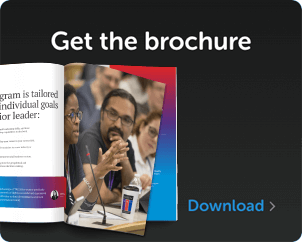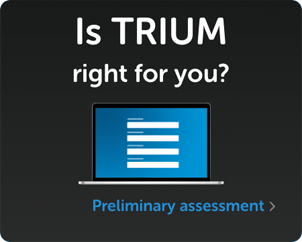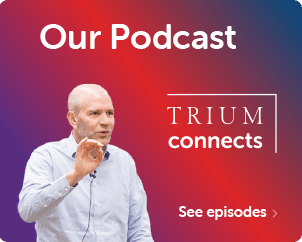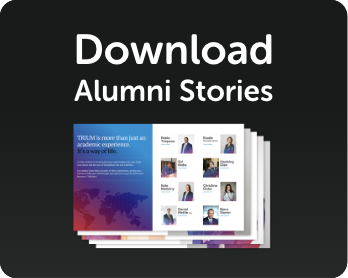
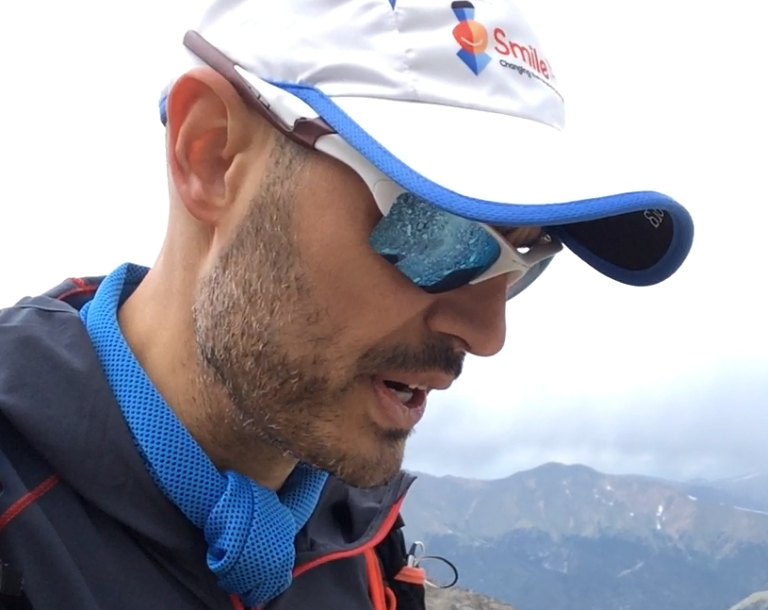
Alex Anyse
As Co-Founder and Partner of The MASY Group, LLC, Alex now specializes in consultancy projects for the Department of Defense and the Intelligence Community. He has been a regular guest speaker for U.S. and international audiences, including global corporate companies as well as academic institutions such as Georgetown and Columbia University.
I believe that a life well lived means being able to look back and see small footprints along the way of how you impacted others in a positive, meaningful way.
This idea has been a guiding principal for TRIUM graduate Alex Anyse, whose career has long been one of public service. A former U.S. Military Intelligence and Clandestine Service Officer with the Central Intelligence Agency, Alex is the recipient of various military awards that include the Bronze Star Medal for service in Afghanistan.
In September 2017, Alex competed in the Spartathlon, one of the most challenging ultra running races in the world, to raise funds and awareness for The Smile Train. Alex recently reflected on how TRIUM complemented his transition to entrepreneurship, and how the program reinforced his desire to serve his community.
What first attracted you to TRIUM and what were you hoping to achieve?
I was born in Paris and grew up in an international environment and felt driven to work in intelligence; that drive led me to serve both in the United States Army and Air Force. Later I served as a CIA Clandestine Service Officer. In these positions, I was directly engaged in global events, partly exposed to the business world, and thinking about what drives fiscal, defense, and public sector policies.
In late 2006, I co-founded The MASY Group, a small consulting firm which provided advisory and intelligence services for the government. My career was fulfilling, but I knew I wanted to know more about entrepreneurship—coming from the public sector, there are gaps you must identify in order to run a successful business. I recognized that my background was very different than many people seeking EMBAs, but I wanted to pursue an EMBA because it would give me that deeper knowledge about how to grow a business, find the absolute best practices, and bridge the gaps between my military experience and my journey into the business world.
I was attracted to TRIUM—which had been consistently ranked as a top-tier program—because of the international travel component as well as the opportunity to be among peers who had achieved professional success in their industries, were willing to share experiences, and how that exposure would bridge theory and practice.
TRIUM looks at the complexities of global marketplace, and my cohort was made up of people who came from different corners of the world and different sectors. I felt at home at TRIUM—it really felt like a natural evolution.
Coming from life in public service, my learning curve was steep. But the flip side is that I had the opportunity to learn a great deal. TRIUM gave me the space to articulate the right questions about how I want to structure my business, how to create a corporate culture, and what leadership in business versus leadership in the military looks like.
Now, five years after the program, The MASY Group has grown from approximately 20 employees to more than 100 employees in a highly competitive market space. Along with my business partner, my role is to make sure we have leadership in place to manage the accounting and financials, the recruiting, human resources, practices, and providing the necessary leadership for the business to grow.
Practically speaking, my accounting and finance courses helped me—and continue to help me—put the most effective and statistically sound strategies in place to grow and maintain a successful business.
There’s no question that TRIUM bridged the gap in my experience and knowledge base, and I credit the rigorous program, my cohort, and of course the world-class global faculty for pushing me and for such extensive professional growth.
What was your most valuable takeaway from TRIUM?
The friendships I’ve gained from the program, and the global network of peers I now have. My first real experience with our class was ease of engagement, and a shared interest in wanting to learn. Through my cohort, I’ve been exposed to what’s taking place in the global marketplace, what motivates others, and learned a great deal about business in the meantime. In conversation with my peers, I learned as much outside of the classroom as I did from the course material.
I’ve always been interested in the psychology of human behavior and the driving motivations of those around me. I relied on this during my time in the CIA, where you very much look at people’s instincts and motivations. At TRIUM, I also was fascinated in learning about what draws people to business, to products, and to services. I felt fortunate that my peers were open and curious about the same factors, which led to really interesting and eye-opening discussions.
As much as the program is the curriculum and course materials, it is about sharing ideas, about creating a space for interesting conversations, and opening doors for one another. The people in the program made it a really rich experience.
You recently completed the Spartathlon—an event in which runners have 36 hours to compete over 153 miles from Athens to Sparta—to raise funds for the nonprofit The Smile Train (www.smiletrain.org). No easy feat! What inspires your works of public service—from your time in the military and CIA to the Spartathlon? How has TRIUM supported these values?
The short answer is rooted in history. I grew up with a sense that you have to pick what you’re going to do with your life—something beyond your own purpose—and follow that. I believe that a life well lived means being able to look back and see small footprints along the way of how you impacted others in a positive, meaningful way.
As for taking on the Spartathlon, I had this concept of “one mile, one smile,” which meant for each mile I ran; it would raise enough funds for a surgery for one child. I threw myself into the training and had the support of family and friends. I’m always interested in exploring the depth of how far you can go, mentally and physically. After racing 50 miles it’s as much about the mind as much as the body.
The training for the Spartathlon is not dissimilar to the EMBA program, if you consider it in a certain way. The EMBA is a journey, you set an end goal, and you need to stay focused on the process.
TRIUM’s values and environment—everything from the globally-focused curriculum to the faculty and international cohort—fosters an awareness of community. You can’t complete a program like TRIUM without a keen sense of the interconnected nature of the world around us, as well as the power we all have to make a difference in that world—whether it is in business or through public service.
What would you say to a prospective student considering TRIUM?
The program offers a unique opportunity to revisit your views and experiences in a different light. TRIUM’S broad experience goes beyond the classroom—let yourself be surprised by the lasting bonds you will establish during and beyond the program.
How would you sum up your TRIUM experience in one phrase?
Both rewarding and enriching, then and still today.

